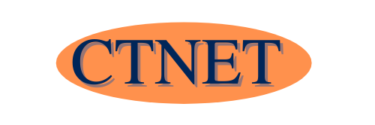In this post I wanted to explore how some of the characteristics of a digital garden that I have discovered during my own Personal Knowledge Management journey.
My own journey has led me to develop a system based on the Zettelkasten. You can find out more about Zettelkasten in our introductory guide.
I noticed during my discovery of the digital garden concept that many of the ideas were similar to my own fledgling Zettelkasten.

What is a digital garden?
A digital garden is a place where you collect ideas. These ideas can be either your own or someone else’s ideas, which you have discovered while consuming content created by someone else, for example, reading a book.
These ideas will become a reflection on you as they will mirror the subjects that interest you. The same is true for any Personal Knowledge Management system. My own Zettelkasten reflects my own interests.
Each note contained within a digital garden should be atomic. By that, we mean it should cover a single concept, idea, or thought.
The digital garden should act as a counterbalance to the constant streaming of information we encounter in our daily lives.
All digital gardens share the following properties:
- Are contextual based on the links between different related ideas within the garden.
- Are constantly changing and evolving as your knowledge grows.
- Are imperfect as the ideas are still forming. Helps you to highlight gaps in your knowledge.
- Are personal to you. It’s a reflection of your interests and knowledge.
- Contains information in different media formats. A digital garden can include text, images, audio, and video.
- Is owned by you and helps you to share your ideas with others, such as this blog post.
The key characteristics of a thriving digital garden
In this section, I wanted to explore what are considered to be the characteristics of a digital garden.
By contextualising your notes with the use of links, you can explore the relationship between the various ideas that have been planted. It is like creating a path through your garden.
A good gardener knows that their garden will evolve over time as the seasons and years pass. The same is true with your digital garden as you plant notes that will interact with others through the links you define. It is your job as a digital gardener to encourage this.
How does a digital garden differ to a Zettelkasten
The simple answer for me is that there is little difference between the two.
The Zettelkasten method is built on the idea of linking related ideas and concepts with the aim of helping you to develop new ideas out of these very links. These links by their very nature give your knowledge context and the way to explore them.
Permanent notes within a Zettelkasten are also supposed to be atomic and should never be considered as being complete as they could be changed or updated at any point in the future as you come across new ideas.
Where I think there might be a difference is the process of getting your knowledge into your system, with the Zettelkasten having a more defined process. With the concept of fleeting, literature, and permanent notes, each one playing a role in the process of adding notes to your Zettelkasten.
Conclusion
The conclusion I want to make is that it doesn’t really matter if you go for a digital garden or a Zettelkasten. Personal Knowledge Management is all about creating a system that works for you; the underlying framework, be it digital garden or Zettelkasten, is there to help you start, but you will need to let it grow with you and let it change to continue to meet your own needs.
A digital garden or a Zettelkasten will help you to control the flow of information and can help reduce the risk of information overload. If you haven’t yet got a Personal Knowledge Management system, start it today.
I’m on the same journey; my own Personal Knowledge Management system has evolved over time with me. Why don’t you join me on this journey as I share my own experiences and lessons learned?
Enjoying our content? Why don’t you join our weekly Newsletter? We will update you on the latest content we have published and what things currently intrigue us.
